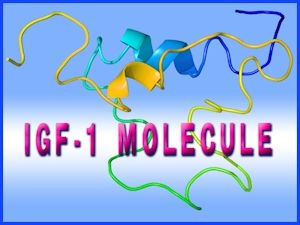Introduction to Peptides and Cancer
Peptides, short chains of amino acids, are increasingly recognized for their potential in cancer treatment. As American males face significant challenges with various forms of cancer, understanding the role of peptides can offer new hope and therapeutic strategies. This article delves into how peptides are being utilized in cancer therapy, their mechanisms of action, and the future prospects of peptide-based treatments.
The Mechanism of Peptides in Cancer Therapy
Peptides work through several mechanisms to combat cancer. One primary method is by targeting specific cancer cells, thereby reducing the impact on healthy cells. For instance, peptide-based therapies can be designed to bind to receptors overexpressed on cancer cells, such as the HER2 receptor in breast cancer, which is also relevant in certain male breast cancers. By attaching to these receptors, peptides can deliver cytotoxic agents directly to the cancer cells, minimizing systemic toxicity.
Additionally, peptides can modulate the immune system. Some peptides act as immunomodulators, enhancing the body's natural defenses against cancer. They can stimulate the production of cytokines, which are crucial in activating immune responses. This is particularly important for American males, as immune system modulation can be a key factor in improving outcomes in cancers such as prostate and melanoma.
Current Applications and Research
In the United States, several peptide-based therapies are either in clinical use or under investigation. For example, leuprolide, a peptide, is used in the treatment of prostate cancer to reduce testosterone levels, which can slow the growth of cancer cells. Research is also underway to develop peptides that can target specific genetic mutations in cancers prevalent among American males, such as lung and colorectal cancers.
Moreover, the field of peptide vaccines is burgeoning. These vaccines aim to train the immune system to recognize and attack cancer cells. Trials are showing promising results, particularly in melanoma and prostate cancer, which are significant concerns for American males.
Challenges and Future Directions
Despite the promise, peptide-based therapies face challenges. One major hurdle is the stability and delivery of peptides. Peptides can be rapidly degraded in the body, necessitating advanced delivery systems like nanoparticles or conjugation with other molecules to enhance their stability and efficacy.
Another challenge is the cost and complexity of developing personalized peptide therapies. As research progresses, there is a need for more affordable and scalable solutions to make these treatments accessible to a broader population of American males.
Looking forward, the integration of peptides with other cancer treatments, such as chemotherapy and immunotherapy, holds great potential. Combination therapies could enhance the effectiveness of treatment while reducing side effects, offering a more holistic approach to cancer management.
Conclusion: The Role of Peptides in Shaping Cancer Treatment for American Males
The exploration of peptides in cancer treatment represents a frontier in medical science with significant implications for American males. As research continues to evolve, peptides offer a promising avenue for targeted, less toxic, and potentially more effective cancer therapies. American males, who are often at the forefront of battling aggressive cancers, stand to benefit greatly from these advancements. The future of cancer treatment may well be written in the language of peptides, offering hope and new possibilities in the fight against this pervasive disease.
Contact Us For A Fast And Professional Response

- Peptide Primer: Getting a Boost From Peptides [Last Updated On: March 22nd, 2025] [Originally Added On: January 6th, 2021]
- Peptide YY Function and Therapeutic Potential [Last Updated On: April 3rd, 2025] [Originally Added On: September 6th, 2021]
- Tesamorelin Testimonial by Vincent "Coach Vinny" Jones [Last Updated On: January 25th, 2025] [Originally Added On: July 21st, 2022]
- BPC-157: A Potent Peptide Therapy for Men’s Hormone Health [Last Updated On: January 26th, 2025] [Originally Added On: July 26th, 2022]
- Unveiling the Anti-Aging Secrets: The Role of Peptides in Modern Medicine [Last Updated On: February 16th, 2025] [Originally Added On: February 16th, 2025]
- Peptides and Epigenetics: Enhancing American Men's Health and Disease Prevention [Last Updated On: February 19th, 2025] [Originally Added On: February 19th, 2025]
- Peptide Innovations: Transforming Allergy Management in American Males [Last Updated On: February 28th, 2025] [Originally Added On: February 28th, 2025]
- The Unveiling Frontier: Peptides in the Panorama of Future Medicine [Last Updated On: March 2nd, 2025] [Originally Added On: March 2nd, 2025]
- Exploring the Role of Peptides in Diabetes Management: Advancements and Future Directions [Last Updated On: March 3rd, 2025] [Originally Added On: March 3rd, 2025]
- Peptide Therapeutics: Transforming Neurological Disorder Treatments in American Males [Last Updated On: March 4th, 2025] [Originally Added On: March 4th, 2025]
- Peptide-Based Immunotherapy: Revolutionizing Treatment for American Men's Health [Last Updated On: March 5th, 2025] [Originally Added On: March 5th, 2025]
- Exploring Peptide Therapy in Men's Health: Applications and Future Directions [Last Updated On: March 6th, 2025] [Originally Added On: March 6th, 2025]
- Peptide-Based Antimicrobials: Targeted Solutions for American Men's Health Challenges [Last Updated On: March 7th, 2025] [Originally Added On: March 7th, 2025]
- Peptides: The Key to Men's Youthful Skin - Dermatological Insights and Benefits [Last Updated On: March 8th, 2025] [Originally Added On: March 8th, 2025]
- Revolutionizing Men's Health: Harnessing Biomimetic Peptides for Tissue Regeneration and Healing [Last Updated On: March 9th, 2025] [Originally Added On: March 9th, 2025]
- Advancements in Therapeutic Proteins and Peptides: Navigating Challenges for American Men's Health [Last Updated On: March 12th, 2025] [Originally Added On: March 12th, 2025]
- Unlocking the Potential of Peptides in Precision Medicine for American Males [Last Updated On: March 13th, 2025] [Originally Added On: March 13th, 2025]
- Unlocking the Power of Peptides: Revolutionizing Wound Healing and Tissue Repair in American Males [Last Updated On: March 15th, 2025] [Originally Added On: March 15th, 2025]
- Peptides and Metabolic Health: A New Frontier for American Males [Last Updated On: March 16th, 2025] [Originally Added On: March 16th, 2025]
- Peptide Therapies: A New Hope for Managing Obesity in American Men [Last Updated On: March 18th, 2025] [Originally Added On: March 18th, 2025]
- Peptides in Veterinary Medicine: Innovations for American Male Veterinarians [Last Updated On: March 18th, 2025] [Originally Added On: March 18th, 2025]
- Peptide and Stem Cell Synergy: Revolutionizing Regenerative Medicine for American Males [Last Updated On: March 18th, 2025] [Originally Added On: March 18th, 2025]
- Peptide Therapeutics: Revolutionizing Chronic Disease Management in American Males [Last Updated On: March 19th, 2025] [Originally Added On: March 19th, 2025]
- Peptides: A New Frontier in Managing Respiratory Health for American Men [Last Updated On: March 21st, 2025] [Originally Added On: March 21st, 2025]
- Peptides: Enhancing Immune Response and Therapy for American Males Against Infections [Last Updated On: March 21st, 2025] [Originally Added On: March 21st, 2025]
- Peptide Vaccines: Advancements, Challenges, and Future for American Males' Immunization [Last Updated On: March 21st, 2025] [Originally Added On: March 21st, 2025]
- Peptides and Gene Therapy: Revolutionizing Men's Health in America [Last Updated On: March 21st, 2025] [Originally Added On: March 21st, 2025]
- Peptides Revolutionizing Eye Care for American Males: Current Research and Future Hope [Last Updated On: March 21st, 2025] [Originally Added On: March 21st, 2025]
- Peptides in Medicine: Enhancing Diagnostics and Drug Delivery for American Males [Last Updated On: March 22nd, 2025] [Originally Added On: March 22nd, 2025]
- Peptides Offer Hope for Managing Neuropathic Pain in American Males [Last Updated On: March 22nd, 2025] [Originally Added On: March 22nd, 2025]
- Peptides Revolutionizing Dental Care for American Males: Healing and Regeneration [Last Updated On: March 23rd, 2025] [Originally Added On: March 23rd, 2025]
- Peptide Therapy: Enhancing Men's Health from Muscle to Cancer Treatment [Last Updated On: March 23rd, 2025] [Originally Added On: March 23rd, 2025]
- Peptide-Enriched Skincare: A Scientific Approach for American Men's Grooming Needs [Last Updated On: March 23rd, 2025] [Originally Added On: March 23rd, 2025]
- Peptides: Enhancing Gut Health and Microbiome Balance in American Males [Last Updated On: March 23rd, 2025] [Originally Added On: March 23rd, 2025]
- Peptide Therapeutics: Targeted Treatments for Rare Diseases in American Males [Last Updated On: March 23rd, 2025] [Originally Added On: March 23rd, 2025]
- Peptides: A New Frontier in Mental Health Treatment for American Males [Last Updated On: March 23rd, 2025] [Originally Added On: March 23rd, 2025]
- Topic Peptides: A Promising New Treatment for Rheumatic Diseases in American Males [Last Updated On: March 23rd, 2025] [Originally Added On: March 23rd, 2025]
- Peptide-Based Biomarkers: Revolutionizing Disease Detection in American Men [Last Updated On: March 23rd, 2025] [Originally Added On: March 23rd, 2025]
- Peptides Revolutionizing Epilepsy Treatment for American Males: New Hope and Insights [Last Updated On: March 23rd, 2025] [Originally Added On: March 23rd, 2025]
- Peptide-Based Biosensors: Revolutionizing Health Monitoring for American Males [Last Updated On: March 24th, 2025] [Originally Added On: March 24th, 2025]
- Peptide Nanotechnology: Revolutionizing Medicine for American Males [Last Updated On: March 24th, 2025] [Originally Added On: March 24th, 2025]
- Peptide Drugs in Pediatrics: Targeted Treatments for Growth and Metabolic Disorders [Last Updated On: March 24th, 2025] [Originally Added On: March 24th, 2025]
- Peptide Radiopharmaceuticals: Revolutionizing Men's Health with Targeted Imaging and Therapy [Last Updated On: March 24th, 2025] [Originally Added On: March 24th, 2025]
- Bioactive Peptides: A New Frontier in Men's Health and Wellness [Last Updated On: March 24th, 2025] [Originally Added On: March 24th, 2025]
- Peptides: A New Frontier in Cardiovascular Disease Prevention for American Men [Last Updated On: March 24th, 2025] [Originally Added On: March 24th, 2025]
- Peptide-Based Anti-venoms: A Promising Leap in Treating Snakebites for American Males [Last Updated On: March 25th, 2025] [Originally Added On: March 25th, 2025]
- Peptides: A New Frontier in Liver Health Management for American Males [Last Updated On: March 25th, 2025] [Originally Added On: March 25th, 2025]
- Peptide Therapy with Topic Peptides for Hematological Disorders in American Males [Last Updated On: March 25th, 2025] [Originally Added On: March 25th, 2025]
- Peptides and Male Fertility: Enhancing Reproductive Health in American Men [Last Updated On: March 25th, 2025] [Originally Added On: March 25th, 2025]
- Peptides: Unlocking Potential in Men's Health and Anti-Aging Treatments [Last Updated On: March 25th, 2025] [Originally Added On: March 25th, 2025]
- Peptide Therapies Enhance Bone Health in American Males: A Comprehensive Overview [Last Updated On: March 25th, 2025] [Originally Added On: March 25th, 2025]
- Next-Generation Peptide Therapies Enhancing Transplant Outcomes in American Males [Last Updated On: March 26th, 2025] [Originally Added On: March 26th, 2025]
- Peptides in Endocrinology: Therapeutic Advances for American Men's Health [Last Updated On: March 26th, 2025] [Originally Added On: March 26th, 2025]
- Peptides: A Promising Solution to Antibiotic Resistance for American Males [Last Updated On: March 26th, 2025] [Originally Added On: March 26th, 2025]
- Peptide Therapies: A New Frontier in Treating GI Disorders in American Males [Last Updated On: March 26th, 2025] [Originally Added On: March 26th, 2025]
- Peptides: A Promising New Approach to Managing Inflammation in American Males [Last Updated On: March 26th, 2025] [Originally Added On: March 26th, 2025]
- Peptides in Sports Medicine: Enhancing Performance and Recovery for American Male Athletes [Last Updated On: March 27th, 2025] [Originally Added On: March 27th, 2025]
- Peptide-Polymer Composites: Revolutionizing Medicine for American Males [Last Updated On: March 27th, 2025] [Originally Added On: March 27th, 2025]
- Peptides: A Promising New Frontier in Treating Male Hair Loss [Last Updated On: March 27th, 2025] [Originally Added On: March 27th, 2025]
- Peptide-Based HIV Vaccines: Progress and Hope for American Males [Last Updated On: March 27th, 2025] [Originally Added On: March 27th, 2025]
- Peptides in Trauma Medicine: Enhancing Healing and Recovery for American Males [Last Updated On: March 27th, 2025] [Originally Added On: March 27th, 2025]
- Peptide Research Advances Offer Hope for American Men with Neurodegenerative Diseases [Last Updated On: March 28th, 2025] [Originally Added On: March 28th, 2025]
- Stem Cells and Peptides: Enhancing Men's Health and Vitality [Last Updated On: March 28th, 2025] [Originally Added On: March 28th, 2025]
- Peptide Bioinformatics: Revolutionizing Precision Medicine for American Men's Health [Last Updated On: March 28th, 2025] [Originally Added On: March 28th, 2025]
- Peptides Revolutionizing Stroke Treatment and Recovery in American Men [Last Updated On: March 28th, 2025] [Originally Added On: March 28th, 2025]
- Peptides as Cell-Penetrating Agents: Revolutionizing Drug Delivery and Targeted Therapies [Last Updated On: March 28th, 2025] [Originally Added On: March 28th, 2025]
- Peptides Revolutionize Toxicology: Diagnosis, Treatment, and Vaccines for American Males [Last Updated On: March 28th, 2025] [Originally Added On: March 28th, 2025]
- Peptide-Enhanced Photodynamic Therapy: A Targeted Approach for American Males' Cancer Treatment [Last Updated On: March 30th, 2025] [Originally Added On: March 30th, 2025]
- Peptide Vaccines: Revolutionizing Veterinary Medicine with Targeted Immunization [Last Updated On: March 30th, 2025] [Originally Added On: March 30th, 2025]
- Peptides' Role and Therapeutic Potential in Managing Acute Kidney Injury in American Males [Last Updated On: April 3rd, 2025] [Originally Added On: April 3rd, 2025]
- Peptide Drug Conjugates: Revolutionizing Men's Health with Targeted Therapy [Last Updated On: April 3rd, 2025] [Originally Added On: April 3rd, 2025]
- Peptides in Substance Abuse Treatment: Mechanisms, Efficacy, and Future Prospects for American Males [Last Updated On: April 5th, 2025] [Originally Added On: April 5th, 2025]
- Peptides in Burn Care: Enhancing Healing and Scar Management for American Males [Last Updated On: April 5th, 2025] [Originally Added On: April 5th, 2025]
- Peptide Therapies: A New Hope for Autoimmune Diseases in American Males [Last Updated On: April 6th, 2025] [Originally Added On: April 6th, 2025]
- Peptide Therapies: Advancing Prostate Cancer Treatment with Precision and Promise [Last Updated On: April 6th, 2025] [Originally Added On: April 6th, 2025]
- Peptide Therapy: A Promising Approach to Osteoporosis in American Males [Last Updated On: April 6th, 2025] [Originally Added On: April 6th, 2025]
- Peptides in Geriatric Medicine: Enhancing Health in Aging American Males [Last Updated On: April 8th, 2025] [Originally Added On: April 8th, 2025]
- Peptides: A Promising New Treatment for Ocular Infections in American Males [Last Updated On: April 8th, 2025] [Originally Added On: April 8th, 2025]
- Peptides in Veterinary Dermatology: Benefits, Challenges, and Future for American Pet Owners [Last Updated On: April 10th, 2025] [Originally Added On: April 10th, 2025]
- Peptide Therapy: A Promising Future for Treating Depression in American Males [Last Updated On: April 10th, 2025] [Originally Added On: April 10th, 2025]

















